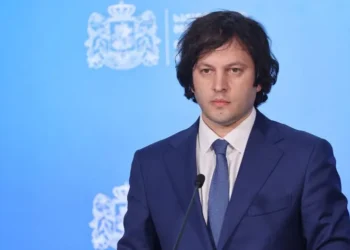The Ministry of Justice of Georgia reports, the decision of the Strasbourg Court illustrates, torture was systematic in the Georgian penitentiary system until 2012.
As noted in the statement, the conclusion of the European Court is based on the information provided to the court by the applicant Akaki Ochigava, in addition to reports and documents published by the Public Defender and non-governmental organizations, the European Committee for the Prevention of Torture and Inhuman or Degrading Treatment or Punishment (CPT) and the fact-finding visit of the Parliamentary Assembly of the Council of Europe, as well as decisions of national courts. The European Court reviewed footage published in the Georgian media in September 2012 about the mistreatment/torture of prisoners in various prison facilities, including the Gldani prison (penitentiary facility No. 8) (prison scandal).
From the decision of the Strasbourg Court, it is established once again that the torture of prisoners in Georgian prisons took place systematically.
As mentioned in the statement, the purpose of this mistreatment was to force the prisoners to obey and cooperate with the prison administration. The complainant Akaki Ochigava experienced the aforementioned forms of torture himself. In November 2011, he was beaten with extreme cruelty, as a result of which he damaged his spine and lost the ability to walk. After complaining about the mentioned fact, the investigator advised him to declare that he got injured when he fell out of bed. The applicant refused, which is why the institution employees broke his fingers with a baseball bat. His fingers were mostly deformed from multiple fractures. In addition, the applicant was not provided with proper medical care. In addition, during one of the incidents, the prison staff stripped him in the shower room, poured cold water on him, and beat him severely with batons. There was a case when the applicant lost consciousness due to beatings, and after regaining consciousness, he found himself handcuffed to a pipe in the prison morgue, with dead bodies.
As a result of the treatment mentioned above in the penitentiary, the applicant has been a disabled person since March 28, 2014.
As Ministery reports, taking into account all of the above, the European Court found that the applicant was subjected to torture in Gldani prison and that it was part of the systemic torture that existed at the time, which was characteristic of the whole system.














